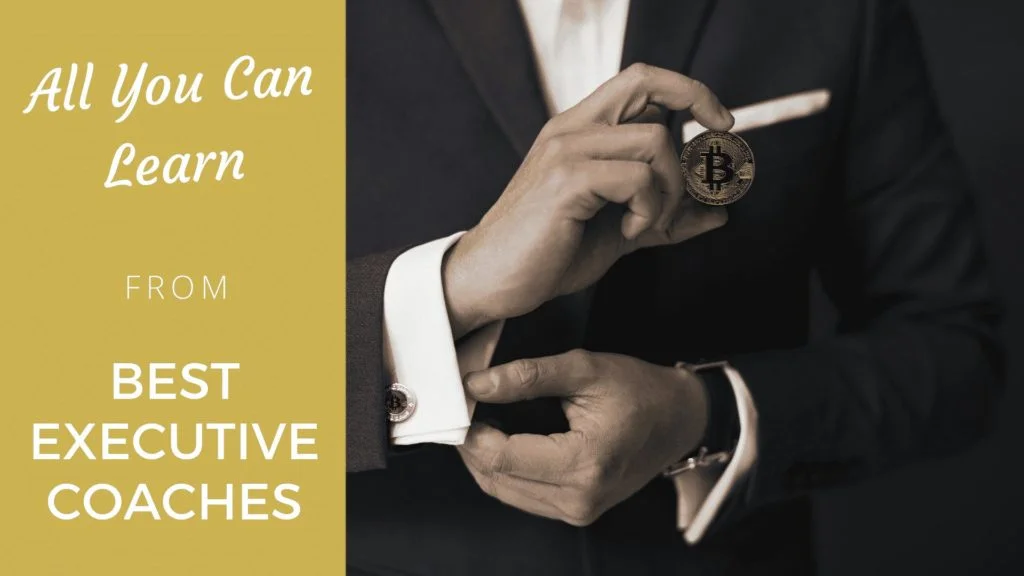Who are the best executive coaches in the world? This is one of the top questions typed in Google.
There can be no consensus when it comes to choosing the best executive coaches. I want to identify a few names of those who made an impact. Do study the career of these “best executive coaches” and see what they are doing right. We can all learn a thing or two from their best practices!
Would you like to add more names of the world’s best executive coaches to this list? Do you have any questions you want to ask? Do reach out to me.

- What sets the best executive coaches apart?
- Are the best executive coaches business coaches?
- List of the best executive coaches to follow in 2021
- How much do the best executive coaches earn?
- Questions that even the best executive coaches face
- What do the best executive coaches need to achieve?
- Frequently Asked Questions (FAQs)
What sets the best executive coaches apart?
What do the best executive coaches do that makes them popular?
Are there some common traits that the best executive coaches have?
There can be no one trait or habit that makes a successful executive coach. It is a combination of aspiration and passion that drives success. This is true of all professions.
This Forbes article highlights three qualities of great executive coaches. This article from HR Magazine UK offers some great tips too!
My blog post lists strategies that the best executive coaches use. Here is an image from iNLP Centre that points out some necessary soft skills.

Are the best executive coaches business coaches?
A company can get better business results if employees get good coaching. But is there a difference between an executive coach and a business coach?

Business and executive coaches work with clients in the corporate sector. An executive coach works with the top leaders in an organization. The top leaders include chief executive officers, directors, vice presidents and managing directors.
A business coach usually focuses on strategy and financial results of a business. Clients usually expect a business coach to have expertise in their particular industry.
Same industry experience may help but it is not necessary for an executive coach. They focus on personal development of a leader. A good leader will inspire better team performance.

The Graduate School of Stanford Business defines executive coaching here. “Executive coaching is an inquiry-based approach to personal and professional development. Executive coaching helps create awareness and generates action. It facilitates learning and growth. It focuses on improving performance. It helps individuals to develop and sustain new perspectives, attitudes, skills and behavior.”
The top tasks of executive coaches are:
- Gathering and giving feedback
- Identifying development opportunities
- Building awareness
- Facilitating solutions by asking powerful questions
- Setting goals and creating action plans
- Facilitating learning
- Supporting and encouraging over the long term
- Monitoring progress and holding others accountable
What should the best executive coaches avoid? These include:
- Telling, teaching, or giving advice
- Counselling, therapy, or consulting
- Correcting mistakes
- Managing performance
- Focused on fixing problem behaviour
- Mentoring
What are some of the benefits of executive coaching?
- Enhancing performance and increasing productivity
- Improving morale
- Reducing turnover
- Attracting talent
- Increasing self-esteem and confidence
- Leveraging talents
- Building new skill sets
- Increasing likelihood of reaching goals
Clients generally hire executive coaches for 6 months on average. But it can range from 3-12 months, depending on the situation.
Executive coaches help:
- Employees with potential who need support to perform better
- Valuable managers with key performance issues to address
- Executives who have been recently hired or promoted
Executive coaching process usually involves:
- Intake and assessment (including 360-degree feedback)
- Goal setting
- Ongoing coaching and skill development
- Measurement of results
Most companies now recognize coaching as an investment. This is because coaching helps to build the talent pool. It also has a direct impact on boosting morale and ensuring happiness.

Seeing the benefits, companies are also extending coaching to the mid-level management nowadays.
This trend has boosted the financial prospects of business and executive coaches. But it comes with its own set of challenges.
How do you distinguish yourself as one of the best executive coaches? The market is growing but still unregulated. This means anyone can claim that are one of the best executive coaches in the world!
To set up your reputation, you need to focus on three things. These will help you establish yourself as one of the best executive coaches:
2. An impressive client list
3. Client references
You can access my previous posts about how to build a profitable coaching business here.
List of the best executive coaches to follow in 2021
You will find several lists of the best executive coaches if you run a search on Google.
Some of these lists actually work as paid advertisements. This means that a particular coach has paid to be part of a list compiled by a media outlet or corporate identity. This makes it harder to judge a coach on the basis of merit.
There is no harm in looking up such lists. You too may consider getting a similar mention. This will help you as a marketing and brand building exercise.
This blog post online provides a list of some other names. What I liked about this blog is that the author did his research and talked to the coaches. The coaches shared their stories and some tips for success. This makes for a great read for all coaches starting out in the business!
I found several lists of the best executive coaches, including this list from Protoly. Some of the best executive coaches mentioned are:
- Jack Canfield: An author, motivational speaker, corporate trainer, and entrepreneur. Canfield was the co-author for the Chicken Soup for the Soul book series.
Wikipedia highlights an interesting opinion of Canfield. He emphasizes the importance of focusing on a vision and using visualization. That is the act of creating compelling and vivid pictures in one’s mind, to achieve goals. The mind is a powerful instrument. It can deliver everything you want. But you have to believe that what you want is possible.
- Judy Feld: Feld works with future-oriented executives, professionals, entrepreneurs, progressive organizations and teams. Her coaching is positive, solution-oriented, collaborative, strategic, and practical.
This website hosts a talk show by Feld, who has been coaching since 1995. She pioneered the development of group coaching models for corporations and organizations. Feld is a sought-after speaker at professional conferences and workshops. In 2003, Feld was the President of the International Coach Federation. The 13,000-member non-profit organization serves professional coaches. Feld is an ICF Master Certified Coach.
- Marshall Goldsmith: He is one of the best-known executive coaches in the United States. He is also the author of What Got You Here Won’t Get You There in Sales among other management books. This Forbes article cites some helpful tips from his book. During an interview, the journalist asked him how leaders can get better at what they do. Goldsmith cited the following questions to help people get better at almost anything:
- Did I do my best to set clear goals?
- Did I do my best to achieve those goals?
- Did I do my best to be happy?
- Did I do my best to find meaning?
- Did I do my best to build positive relationships?
- Did I do my best to engage?
Research showed 34% people said they got better at everything, he said.
- Christy Whitman: She is a politician and author and New Jersey’s first female governor. She coaches clients to create a positive work-life balance. This increases their personal happiness and sense of fulfilment. She offers coaching on career, personal relationship and personality development related coaching. The Today Show, People Magazine, Seventeen, Woman’s Day have featured her in interviews. Two of her three books have become best sellers.
Do you want to find out best practices from other world’s best executive coaches? Use technology and ready tools at hand. This link provides a list of 100 best executive coaches near you. Look it up to see how you can differentiate yourself!

How much do the best executive coaches earn?
According to Payscale.com, the average salary of an executive coach in the United States is $98,264. Job search website Indeed.com states that the average ranges from $15.96 (Career Coach) to $81.58 (Agile Coach) per hour.
You can see the whole range in https://erickson.edu/blog/how-much-does-coaching-pay. The salary would vary depending on the status of your client. Salaries start at $150 and can go up to $350 for most coaches. Some can even charge $1,000 per session! Such coaches offer life coaching, strategic sound-boarding and other support.
The Erickson blog notes that experience is a very big factor. But it is not the only factor that decides income. “Building a business takes branding, niche development and attention to results-based processes”. Over time, you will have clients referring more prospects. And you will be earning the rate that feels right for you.
It is not possible to find out how much the best executive coaches mentioned earn. It is safe to say that they have reached the height of success.
Questions that even the best executive coaches face
There are a few things to remember when you are approaching a new business. You may expect the following questions, so prepare yourself.
How will you handle confidentiality?
This is a tricky one. The management may want confidential data when you are working with top leaders like the CEO. Even some of the best executive coaches have faced this situation.
Do not work with unethical organizations as the end is always unpleasant. Trust between the coach and the client is essential in a good coaching relationship. Your client should give you written permission to share any data.
What credentials do you have?
Like in any other job interview, you may need to compete against others. A degree from a reputed body such as the International Coaches Federation (ICF) is helpful. A client may ask for details of your specific sector experience. You may be new to the sector but may have related industry experience. Bring that to the notice of your employer. Focus on all your USPs and show them how you can help.
What’s your success rate with coaching leaders at the top level?
Be honest about how long you have been coaching. What kind of a track record do you have? Make a list of leaders that you have worked with (after asking them). Share this with your prospective employer for any reference check!
Prepare a list of coaching goals. Highlight experience in coaching someone with similar goals. This will help your employer assess whether you are the right fit for their organization. Some of the best executive coaches have started small. There is nothing holding you back from becoming one of the best executive coaches either!
You may also look at this as an opportunity to understand how clients look for coaches. Here is a Forbes article on how leaders choose the coach they want to work with.
Does age of the executive matter when it comes to choosing a coach? This article published in Harvard Business Review seems to think so. The authors claim that younger and older executives need different things from coaching.

What do the best executive coaches need to achieve?
Coaching today has become the accepted norm. Clients pay mega bucks for a result-driven coach with a successful track record. Apart from major corporations, even mid-level businesses are realizing the power of coaching. And the stakes are rising even higher when it comes to compensation.
What does success for the best executive coaches mean? As a coach, you will not find a simple answer to this question.
Clients tend to measure success against profitability. Here are some measurable results that the best executive coaches achieve:
- Helping a leader become self–aware. Intuitive self-awareness among leaders has a direct impact on organizational effectiveness and profitability. This is a key learning in the self-development process. The world’s best executive coaches have helped clients with unique challenges.
- Hone judgement skills. We have often seen work cultures crumble and organizations fail. The leader took some bad decisions about his team. This is where a good coach and timely help can turn around the situation. A good executive coach offers an unbiased and correct perception. They can help the leader take informed decisions. A good coach trains the leader to learn and apply the same skills in the future for other challenges. This is why top leaders have hired some of the best executive coaches in the world.
- Create a unique recipe for success. Each leader is different. The best executive coaches help each leader develop their own “secret” for success. They work with the client as partners. Coaches help leaders identify unique traits that would help them. But the leaders themselves may not be aware of the potential.
- Help build more productive relationships. Often, we tend to limit ourselves by choosing to work with people “like us”. This can limit the success of an organization. A good coach helps break this cycle. Good coaches also help leaders to understand and create strong working relationships. An interesting contributing piece in Forbes is here.
Frequently Asked Questions (FAQs)
What can you learn from executive coaching?
Executive coaching is a type of professional development for leaders. It involves working with a coach to help you achieve your goals. Coaches can help you develop your skills, improve your performance, and reach your full potential. Executive coaching can be a valuable tool to help you achieve success in your career.
What are the qualities of an executive coach?
Qualities of a good executive coach include: having a strong understanding of business and leadership. – being able to give objective feedback. – being able to help you set and achieve goals. – being able to keep you accountable. An executive coach should have a strong understanding of business and leadership in order to help their client achieve their goals. The coach should also be able to give objective feedback, help the client stay accountable, and be a support system.
What is the best way to use executive coaching?
Executive coaching can be used in a number of ways, including- helping you develop your skills – improving your performance – reaching your full potential – dealing with difficult situations – developing a succession plan.
How much does an executive coach make?
The average salary for an executive coach is $75,000 per year. Depending upon their experience, skills, certifications and client base, this number can vary.


ABOUT SAI BLACKBYRN
I’m Sai Blackbyrn, better known as “The Coach’s Mentor.” I help Coaches like you establish their business online. My system is simple: close more clients at higher fees. You can take advantage of technology, and use it as a catalyst to grow your coaching business in a matter of weeks; not months, not years. It’s easier than you think.
AS SEEN ON
0 Comment